Montuno
...como el Son...
[COLOR=rgba(0, 0, 0, 0.84)]Now yes, the continuation of the series of threads on Chechnya.
This installment, number 2, is called ICHKERIA AND THE WAR, and includes the following topics:
-The minorities of the USSR
-The teips (The what?)
-The bombing of Grozny
And much, much more (?)!
Here we go... [/COLOR]
[/COLOR]
[COLOR=rgba(0, 0, 0, 0.84)]1) In the previous thread, we talked a little bit about what the Chechens are like, about their history, and we stopped at the moment when the Chechen Republic of Ichkeria declared its independence from Russia, in 1991.
In case you didn't read it, you I leave here[/COLOR]
[COLOR=rgba(0, 0, 0, 0.84)]Unroll available on Thread Reader[/COLOR]
[COLOR=rgba(0, 0, 0, 0.84)][/COLOR]
[COLOR=rgba(0, 0, 0, 0.84)]2) What is Ichkeria? Why did they choose that name?
It is the old name of the region, of Turkic origin, before the arrival of the Russian Cossacks.
Another option for the new country was to name it Nokhchi-Nokhk (translates to 'land of the Chechens').
No, stop, better Ichkeria... [/COLOR]
[/COLOR]
[COLOR=rgba(0, 0, 0, 0.84)]3) It sounds like a joke but it's not.
When a new nation is recognized, it is preferable that its name is easy and sounds good.
Albania, for example, is actually called Shqiperia.
Kazakhstan once thought of changing its name: "The 'istans' do not have good marketing."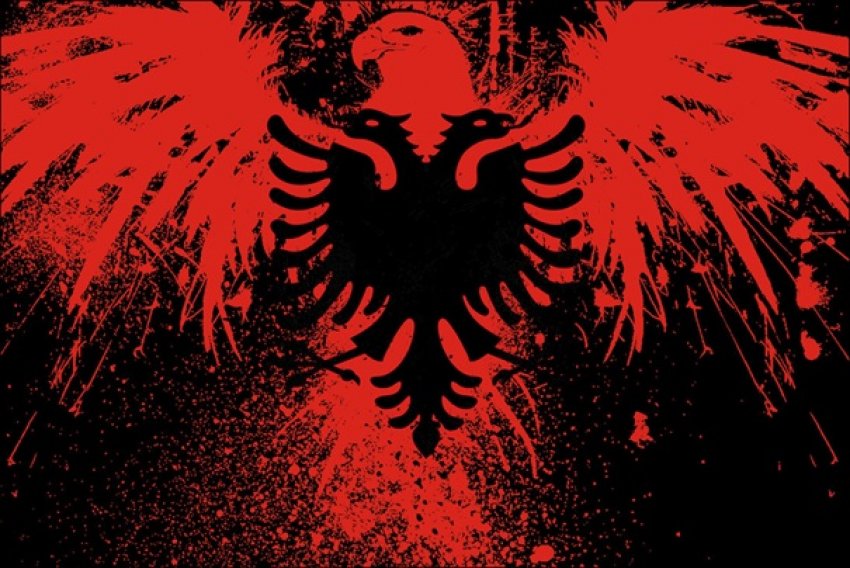 [/COLOR]
[/COLOR]
[COLOR=rgba(0, 0, 0, 0.84)]4) Coming back: it turns out that, after the end of the USSR, Russia had lost 14 republics
but still kept a hundred other nationalities on its territory.
That was THE issue:
What to do with minorities?
How to get them to want to remain part of Russia if the country is in chaos? [/COLOR]
[/COLOR]
[COLOR=rgba(0, 0, 0, 0.84)]5) In 1992, Moscow reaches an agreement with the minorities.
"We give you different degrees of autonomy and tax breaks, but you stay."
86 nationalities accept.
2 say no: Tatarstan and Chechnya.
In the end, the Tatars fix.
Chechens, the only rebels. [/COLOR]
[/COLOR]
[COLOR=rgba(0, 0, 0, 0.84)]6) It's time to meet a central character of this story: Dzhokhar Dudayev.
Former Soviet General, he comes to power in 1991 and declares Ichkeria independence.
So, Russia sent the military, but the Chechens were waiting for them at the airport.
They couldn't even get off the plane. [/COLOR]
[/COLOR]
[COLOR=rgba(0, 0, 0, 0.84)]7) Despite his success in declaring independence, Dudayev still faces strong opposition in Ichkeria itself.
Many people deplore his authoritarian style, personalism, misplaced phrases and even his intransigence towards Moscow.
And then, of course, there were the teips.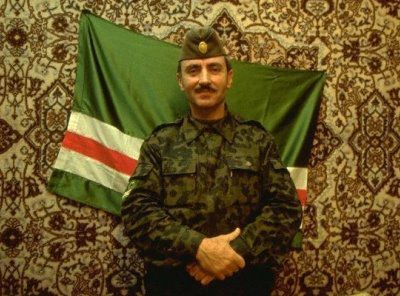 [/COLOR]
[/COLOR]
[COLOR=rgba(0, 0, 0, 0.84)]8) Historically, Chechen society was (and is) organized in teips.
The teips are a kind of clans; strong family ties, belonging, village.
To some teips, Dudayev closed them. Others, on the other hand, hated him.
And the teips do not usually sit idly by. [/COLOR]
[/COLOR]
[COLOR=rgba(0, 0, 0, 0.84)]9) We then have:
-Ichkeria/Chechnya, de facto independent (1991) but not recognized by the world.
-Russia, powerless to resolve the situation.
-Dudayev, president of the new country, but with strong internal opposition.
And now the catastrophe begins, the total debacle... [/COLOR]
[/COLOR]
[COLOR=rgba(0, 0, 0, 0.84)]10) A succession of embarrassing events involving all those named above and reaching its climax in December 1994, when Russian troops finally invaded the 'independent' Chechen territory of Ichkeria.
How did we get to this? [/COLOR]
[/COLOR]
[COLOR=rgba(0, 0, 0, 0.84)]11) The opposition to Dudayev does not bank him anymore and wants to remove him from power.
They organize one, two coups, but they fail.
And so they ask 'Mama Russia' for help.
"Here we go," reply the Russians, eager to enter Ichkeria.
There is no turning back: the war begins. [/COLOR]
[/COLOR]
[COLOR=rgba(0, 0, 0, 0.84)]12) The Russian military power was far superior to the Ichkerio.
"This is over quickly," says TV in Moscow.
Serious mistake: they did not count on the mobility of the Chechen guerrillas.
What was going to be a simple procedure gets bogged down. Yeltsin sees how everything begins to get out of hand. [/COLOR]
[/COLOR]
[COLOR=rgba(0, 0, 0, 0.84)]13) Like everything in history, in the Chechen war there are also different points of view, interpretations.
And there are those who say: Chechnya did not defeat Russia thanks to its mountain guerrillas; in reality, she beat her thanks to western, foreign help... [/COLOR]
[/COLOR]
[COLOR=rgba(0, 0, 0, 0.84)]14) Yes, Chechnya won, but calm down.
Foreign aid? Of course: if there is something that the West fears, it is a strong, powerful, united Russia.
And everything that serves to create problems, destabilize it, diminish it is useful.
For example, supporting the Ichkeria insurgency in the Caucasus. [/COLOR]
[/COLOR]
[COLOR=rgba(0, 0, 0, 0.84)]15) In fact, banking anti-Russian Islamic movements is something usual in the history of the West.
Without going any further, the US financing of the Taliban and Bin Laden during the war between the USSR and Afghanistan.
Then, well, what we all know happened. It can fail... [/COLOR]
[/COLOR]
[COLOR=rgba(0, 0, 0, 0.84)]16) Chechen guerrillas literally eat the Russians on the mountain.
They know the land, they have the support of the peasants.
On top of that, the morale of the Russians is very low.
What are we doing here? Who are we fighting? Why?
The Russian disaster is approaching. [/COLOR]
[/COLOR]
[COLOR=rgba(0, 0, 0, 0.84)]17) On top of that, Yeltsin decides not to use the best units of the Army.
He sends young men who are recruited from the interior provinces and other republics.
A republic, Chuvasia, refuses: "We don't want our youth to die in a war that doesn't belong to us." [/COLOR]
[/COLOR]
[COLOR=rgba(0, 0, 0, 0.84)]18) The war escalates and becomes unpopular.
The terrible bombing of Grozny by Russian forces begins: human rights violations, attacks on civilians, many excesses are committed.
The Chechens weren't little angels either, eh: multiple atrocities also go to their account... [/COLOR]
[/COLOR]
[COLOR=rgba(0, 0, 0, 0.84)]19) Impossible to describe the war in a couple of tweets. On top of that, it spreads to other regions: Ingushetia, Dagestan, Stavropol...
It's a real disaster.
But no, let's not talk about that: whoever is really interested in the war course can look it up on the Internet, there are a thousand pages. [/COLOR]
[/COLOR]
[COLOR=rgba(0, 0, 0, 0.84)]20) Eye; advice: don't trust a single source. Neither with this nor with anything.
Neither in me, eh: I try to be, but it's impossible to always be impartial.
Anyway, we come to August 1996 and what was going to be a lightning Russian victory has already been almost two years of death and destruction.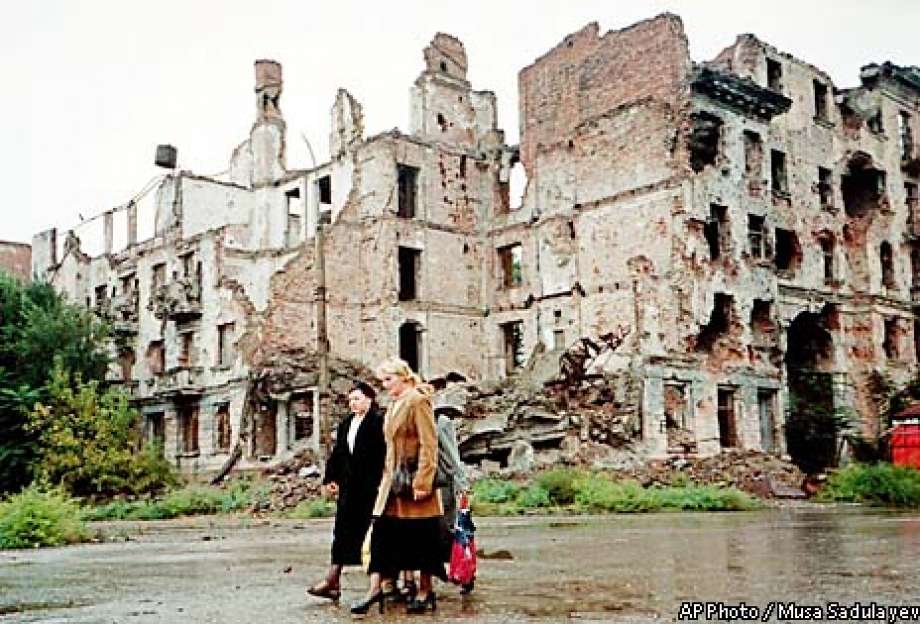 [/COLOR]
[/COLOR]
[COLOR=rgba(0, 0, 0, 0.84)]21) And then the armistice is signed.
Russia withdraws humiliated, unable to win.
Ichkeria remains de facto independent.
Grozny, in ruins; totally shattered.
Dead, refugee, hell.
Dudayev was killed, but his country defeated Goliath.
unimaginable. [/COLOR]
[/COLOR]
[COLOR=rgba(0, 0, 0, 0.84)]22) In the next thread of this series: THE SECOND CHECHEN WAR AND RAMZAN KADYROV.
Also, soon, more texts about the Russian Caucasus: Ossetia and Dagestan.
The November screen explodes in Periodistan!
We made it together (?)
Ahre. [/COLOR]
[/COLOR]
https://threadreaderapp.com/thread/1198708354878771202.html
This installment, number 2, is called ICHKERIA AND THE WAR, and includes the following topics:
-The minorities of the USSR
-The teips (The what?)
-The bombing of Grozny
And much, much more (?)!
Here we go...
 [/COLOR]
[/COLOR][COLOR=rgba(0, 0, 0, 0.84)]1) In the previous thread, we talked a little bit about what the Chechens are like, about their history, and we stopped at the moment when the Chechen Republic of Ichkeria declared its independence from Russia, in 1991.
In case you didn't read it, you I leave here[/COLOR]
[COLOR=rgba(0, 0, 0, 0.84)]Unroll available on Thread Reader[/COLOR]
[COLOR=rgba(0, 0, 0, 0.84)][/COLOR]
[COLOR=rgba(0, 0, 0, 0.84)]2) What is Ichkeria? Why did they choose that name?
It is the old name of the region, of Turkic origin, before the arrival of the Russian Cossacks.
Another option for the new country was to name it Nokhchi-Nokhk (translates to 'land of the Chechens').
No, stop, better Ichkeria...
 [/COLOR]
[/COLOR][COLOR=rgba(0, 0, 0, 0.84)]3) It sounds like a joke but it's not.
When a new nation is recognized, it is preferable that its name is easy and sounds good.
Albania, for example, is actually called Shqiperia.
Kazakhstan once thought of changing its name: "The 'istans' do not have good marketing."
 [/COLOR]
[/COLOR][COLOR=rgba(0, 0, 0, 0.84)]4) Coming back: it turns out that, after the end of the USSR, Russia had lost 14 republics
but still kept a hundred other nationalities on its territory.
That was THE issue:
What to do with minorities?
How to get them to want to remain part of Russia if the country is in chaos?
 [/COLOR]
[/COLOR][COLOR=rgba(0, 0, 0, 0.84)]5) In 1992, Moscow reaches an agreement with the minorities.
"We give you different degrees of autonomy and tax breaks, but you stay."
86 nationalities accept.
2 say no: Tatarstan and Chechnya.
In the end, the Tatars fix.
Chechens, the only rebels.
 [/COLOR]
[/COLOR][COLOR=rgba(0, 0, 0, 0.84)]6) It's time to meet a central character of this story: Dzhokhar Dudayev.
Former Soviet General, he comes to power in 1991 and declares Ichkeria independence.
So, Russia sent the military, but the Chechens were waiting for them at the airport.
They couldn't even get off the plane.
 [/COLOR]
[/COLOR][COLOR=rgba(0, 0, 0, 0.84)]7) Despite his success in declaring independence, Dudayev still faces strong opposition in Ichkeria itself.
Many people deplore his authoritarian style, personalism, misplaced phrases and even his intransigence towards Moscow.
And then, of course, there were the teips.
 [/COLOR]
[/COLOR][COLOR=rgba(0, 0, 0, 0.84)]8) Historically, Chechen society was (and is) organized in teips.
The teips are a kind of clans; strong family ties, belonging, village.
To some teips, Dudayev closed them. Others, on the other hand, hated him.
And the teips do not usually sit idly by.
 [/COLOR]
[/COLOR][COLOR=rgba(0, 0, 0, 0.84)]9) We then have:
-Ichkeria/Chechnya, de facto independent (1991) but not recognized by the world.
-Russia, powerless to resolve the situation.
-Dudayev, president of the new country, but with strong internal opposition.
And now the catastrophe begins, the total debacle...
 [/COLOR]
[/COLOR][COLOR=rgba(0, 0, 0, 0.84)]10) A succession of embarrassing events involving all those named above and reaching its climax in December 1994, when Russian troops finally invaded the 'independent' Chechen territory of Ichkeria.
How did we get to this?
 [/COLOR]
[/COLOR][COLOR=rgba(0, 0, 0, 0.84)]11) The opposition to Dudayev does not bank him anymore and wants to remove him from power.
They organize one, two coups, but they fail.
And so they ask 'Mama Russia' for help.
"Here we go," reply the Russians, eager to enter Ichkeria.
There is no turning back: the war begins.
 [/COLOR]
[/COLOR][COLOR=rgba(0, 0, 0, 0.84)]12) The Russian military power was far superior to the Ichkerio.
"This is over quickly," says TV in Moscow.
Serious mistake: they did not count on the mobility of the Chechen guerrillas.
What was going to be a simple procedure gets bogged down. Yeltsin sees how everything begins to get out of hand.
 [/COLOR]
[/COLOR][COLOR=rgba(0, 0, 0, 0.84)]13) Like everything in history, in the Chechen war there are also different points of view, interpretations.
And there are those who say: Chechnya did not defeat Russia thanks to its mountain guerrillas; in reality, she beat her thanks to western, foreign help...
 [/COLOR]
[/COLOR][COLOR=rgba(0, 0, 0, 0.84)]14) Yes, Chechnya won, but calm down.
Foreign aid? Of course: if there is something that the West fears, it is a strong, powerful, united Russia.
And everything that serves to create problems, destabilize it, diminish it is useful.
For example, supporting the Ichkeria insurgency in the Caucasus.
 [/COLOR]
[/COLOR][COLOR=rgba(0, 0, 0, 0.84)]15) In fact, banking anti-Russian Islamic movements is something usual in the history of the West.
Without going any further, the US financing of the Taliban and Bin Laden during the war between the USSR and Afghanistan.
Then, well, what we all know happened. It can fail...
 [/COLOR]
[/COLOR][COLOR=rgba(0, 0, 0, 0.84)]16) Chechen guerrillas literally eat the Russians on the mountain.
They know the land, they have the support of the peasants.
On top of that, the morale of the Russians is very low.
What are we doing here? Who are we fighting? Why?
The Russian disaster is approaching.
 [/COLOR]
[/COLOR][COLOR=rgba(0, 0, 0, 0.84)]17) On top of that, Yeltsin decides not to use the best units of the Army.
He sends young men who are recruited from the interior provinces and other republics.
A republic, Chuvasia, refuses: "We don't want our youth to die in a war that doesn't belong to us."
 [/COLOR]
[/COLOR][COLOR=rgba(0, 0, 0, 0.84)]18) The war escalates and becomes unpopular.
The terrible bombing of Grozny by Russian forces begins: human rights violations, attacks on civilians, many excesses are committed.
The Chechens weren't little angels either, eh: multiple atrocities also go to their account...
 [/COLOR]
[/COLOR][COLOR=rgba(0, 0, 0, 0.84)]19) Impossible to describe the war in a couple of tweets. On top of that, it spreads to other regions: Ingushetia, Dagestan, Stavropol...
It's a real disaster.
But no, let's not talk about that: whoever is really interested in the war course can look it up on the Internet, there are a thousand pages.
 [/COLOR]
[/COLOR][COLOR=rgba(0, 0, 0, 0.84)]20) Eye; advice: don't trust a single source. Neither with this nor with anything.
Neither in me, eh: I try to be, but it's impossible to always be impartial.
Anyway, we come to August 1996 and what was going to be a lightning Russian victory has already been almost two years of death and destruction.
 [/COLOR]
[/COLOR][COLOR=rgba(0, 0, 0, 0.84)]21) And then the armistice is signed.
Russia withdraws humiliated, unable to win.
Ichkeria remains de facto independent.
Grozny, in ruins; totally shattered.
Dead, refugee, hell.
Dudayev was killed, but his country defeated Goliath.
unimaginable.
 [/COLOR]
[/COLOR][COLOR=rgba(0, 0, 0, 0.84)]22) In the next thread of this series: THE SECOND CHECHEN WAR AND RAMZAN KADYROV.
Also, soon, more texts about the Russian Caucasus: Ossetia and Dagestan.
The November screen explodes in Periodistan!
We made it together (?)
Ahre.
 [/COLOR]
[/COLOR]https://threadreaderapp.com/thread/1198708354878771202.html






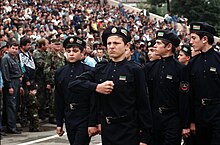
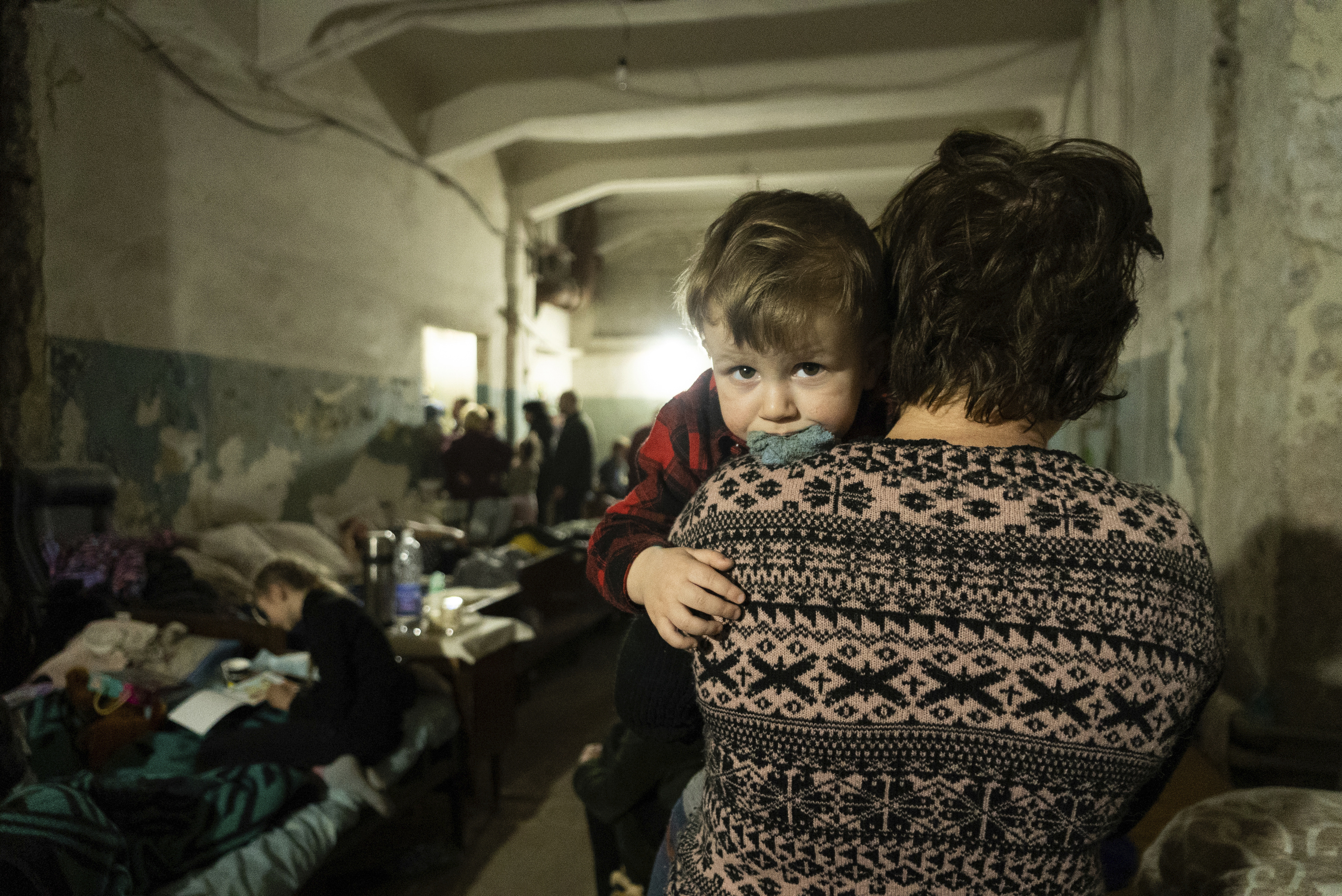
:format(jpg)/f.elconfidencial.com%2Foriginal%2F737%2Fcc5%2Fcf4%2F737cc5cf4830e01c5dfed5a5e39d1ee8.jpg)
:format(jpg)/f.elconfidencial.com%2Foriginal%2F737%2Fcc5%2Fcf4%2F737cc5cf4830e01c5dfed5a5e39d1ee8.jpg)

















